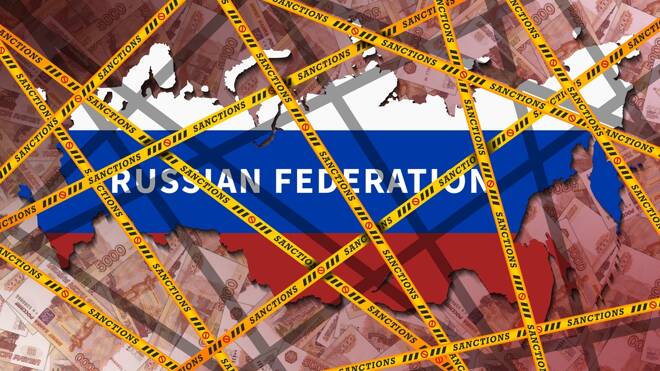Advertisement
Advertisement
How Would Sanctions on Russia’s Central Bank Impact Crypto?
By:
Russia's Central Bank will have to find alternative ways to support the ruble and the Russian economy, but it remains to be seen whether it will be ready to soften its stance on crypto.
Key Insights
- Western sanctions freeze assets of Russia’s Central Bank
- Russia will not proceed with crypto regulations anytime soon as it is busy dealing with a potential crisis triggered by Western sanctions
- Bitcoin miners in Russia may face extinction due to tech sanctions
Russia’s Central Bank has recently found itself under sanctions, which will block its ability to access its foreign currency reserves and hurt the ruble. What’s the impact on crypto?
Russia’s Central Bank Won’t Change Its Stance on Crypto Anytime Soon
Russian Central Bank has previously warned about the dangers of crypto and proposed a ban. However, the country’s Ministry of Finance was against the move, and financial authorities were expected to come to a compromise.
However, all crypto regulations are now off the table as the Central Bank and the Ministry of Finance are busy dealing with the fallout from harsh sanctions on Russia. Most likely, they will have no time for things like cryptocurrencies in the upcoming weeks and months.
Some analysts may speculate that Russia may try to use cryptocurrencies to limit the impact of sanctions. Still, it remains to be seen whether it’s a realistic scenario for any big companies or banks, as they will have to move from cryptocurrencies to stablecoins to fiat without getting noticed by the Western financial authorities.
Tech Sanctions Threaten Bitcoin Mining in Russia
The West has also imposed harsh technological sanctions on Russia, which will make it extremely difficult to sell high-end tech to the country. The direct impact will be felt by Russia’s Bitcoin miners.
If sanctions last long enough (and history tells us those sanction regimes last for years if not decades), Russian Bitcoin miners will simply run out of modern equipment. This is a key thing to watch for Bitcoin traders as it may put pressure on the Bitcoin hashrate.
Meanwhile, I’d expect greater adoption of stablecoins like USDT and UST as Ukrainian and Russian citizens navigate the current crisis.
About the Author
Vladimir Zernovauthor
Vladimir is an independent trader, with over 18 years of experience in the financial markets. His expertise spans a wide range of instruments like stocks, futures, forex, indices, and commodities, forecasting both long-term and short-term market movements.
Advertisement
